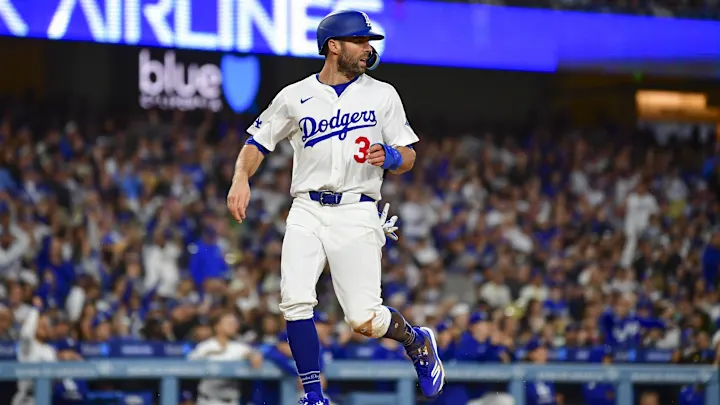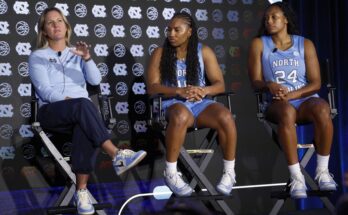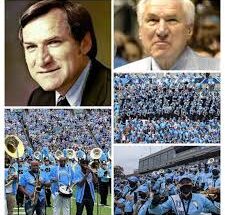The Los Angeles Dodgers made a stunning move that sent shockwaves across Major League Baseball: Chris Taylor, a versatile veteran and key contributor to the team’s success over the past decade, has been designated for assignment. The move, while not entirely unforeseen given Taylor’s recent struggles at the plate, still represents a massive shift in direction for a club that once relied heavily on his utility, leadership, and postseason heroics. By designating Taylor for assignment, the Dodgers now have seven days to trade, release, or outright him to the minor leagues if he clears waivers—though the likelihood of a team claiming him outright is slim due to his contract.
Taylor, who signed a four-year, \$60 million extension with the Dodgers before the 2022 season, has been mired in a prolonged slump. His batting average for the 2025 campaign was hovering around the Mendoza Line, and his strikeout rate continued to climb. Despite continued work with the coaching staff and tinkering with his swing mechanics, Taylor simply couldn’t rediscover the form that once made him such a dangerous threat in the Dodgers’ lineup. His struggles weren’t confined to this season alone, either. The decline has been a slow burn since his 2021 All-Star campaign, when he hit .254 with 20 home runs and 73 RBIs while playing nearly every position on the field. Since then, his bat has cooled significantly, and his defense—while still solid—could no longer offset the offensive inefficiencies.
The decision to designate Taylor is emblematic of the Dodgers’ win-now mentality. Los Angeles is in the midst of a World Series-or-bust season. With Shohei Ohtani now in the fold, Freddie Freeman and Mookie Betts playing at MVP levels, and a lineup loaded with firepower, every roster spot is precious. Manager Dave Roberts has shown increasing willingness this season to move off underperforming veterans in favor of younger, more dynamic contributors. Players like Miguel Vargas, Andy Pages, and even minor-league call-ups have started to command more attention, taking advantage of their limited opportunities. The front office, led by Andrew Friedman, has proven it will not hesitate to make difficult decisions, even if they involve longtime clubhouse staples like Taylor.
What makes this move especially poignant is Taylor’s history with the team. Acquired in a low-profile trade from the Seattle Mariners in 2016, Taylor quickly reinvented himself in Los Angeles. He became one of the first success stories of the Dodgers’ player development machine, transforming from a light-hitting infielder into a crucial cog in a championship-caliber roster. His breakout came in 2017, when he slashed .288/.354/.496 and played a vital role in the team’s National League pennant. He famously hit a leadoff home run in Game 1 of the World Series that year and later provided one of the most memorable moments in franchise history with a walk-off home run in the 2021 NL Wild Card game against the St. Louis Cardinals. Few players in recent Dodgers history have provided as many clutch postseason moments as Taylor, who owns a career .842 OPS in playoff games—far exceeding his regular season numbers.
However, baseball is a business, and sentiment only goes so far when performance declines and payroll constraints come into play. Taylor’s contract, with over \$25 million remaining, became a burdensome albatross. Designating him for assignment allows the Dodgers to reallocate that roster spot, potentially to a reliever, a prospect, or a bat off the bench. It’s a painful but calculated move, one the Dodgers hope will pay dividends as they prepare for another deep postseason run. The team has shown time and time again that it’s willing to cut ties with declining veterans if the production no longer matches the price tag—just as they did with players like AJ Pollock, Cody Bellinger, and Kenley Jansen in previous years.
From Taylor’s perspective, this DFA represents both an ending and a possible new beginning. Though it’s unlikely a contending team would claim him off waivers given the salary commitment, there is a possibility he could be traded to a team looking for veteran depth or leadership in the clubhouse. If he clears waivers and elects free agency, he could sign a minor-league deal elsewhere and attempt to work his way back to the majors. There is also the chance that Taylor remains within the Dodgers organization, accepts an outright assignment to Triple-A Oklahoma City, and uses the opportunity to reset and regain his timing at the plate. His value as a clubhouse leader and respected teammate cannot be discounted, and there may still be mutual interest in some form of reconciliation, even if it’s in a reduced role.
The fans, many of whom have long adored Taylor for his gritty style of play and selfless approach, were quick to react on social media. Tributes poured in, with highlights of his postseason heroics and versatile defensive gems making the rounds. Many lamented the move as the end of an era, particularly for a player who personified the Dodgers’ organizational philosophy of versatility and adaptability. Others, while respectful of Taylor’s past contributions, acknowledged that the time had come. Baseball is a sport of constant change, and sentimentality often collides with cold, hard numbers. Unfortunately, in Taylor’s case, the numbers won.
Internally, the Dodgers appear to be making a concerted effort to shift toward younger, more cost-effective talent. The emergence of Miguel Vargas as a legitimate option in the infield, combined with the improved health of Gavin Lux and the return of Jason Heyward, pushed Taylor further down the pecking order. Additionally, the front office is always looking ahead—not just to October, but to future seasons where financial flexibility will be needed to retain stars like Will Smith and keep the core of Ohtani, Betts, and Freeman supported with complementary pieces. Roster space is at a premium, especially with the Dodgers dealing with a record number of injuries to their pitching staff. Carrying a struggling utility player with a high salary became a luxury the team could no longer afford.
While Taylor’s designation may have caught some off guard, those around the team had sensed a change coming. His playing time had dwindled in recent weeks, and he hadn’t appeared in many high-leverage situations. In prior years, Taylor was often used as a plug-and-play asset, capable of filling holes wherever needed—from shortstop to center field to second base. But in 2025, his opportunities became more situational and sporadic. Roberts’ comments during pre- and post-game media sessions increasingly focused on the need for “more consistent at-bats” and “better swing decisions,” indirect references that hinted at Taylor’s struggles. The writing, it seems, was on the wall.
The DFA also serves as a stark reminder of the volatility of even the most beloved careers in professional sports. Just a few years ago, Taylor was an All-Star, a World Series champion, and a fan favorite. He was rewarded with a lucrative contract and hailed as a cornerstone of the Dodgers’ flexible roster construction. Now, he faces an uncertain future, and the Dodgers move on without one of their most dependable players of the last decade. It’s a harsh but inevitable reality in the pursuit of sustained excellence, and the Dodgers—perhaps more than any team in the league—have shown a willingness to evolve.
For now, all eyes will be on the front office and where Taylor’s situation goes from here. Will a team in need of a veteran presence swoop in with a trade offer? Could Taylor be released outright, making him a free agent and free to sign with any club willing to take a chance on a rebound? Or might the Dodgers work out a revised role for him within the organization, one focused more on mentorship and less on on-field performance? Any path remains plausible, but none will likely match the impact or emotional resonance of his years in Dodger blue.
Chris Taylor’s Dodgers tenure was filled with triumphs, underdog moments, and unforgettable postseason memories. He was a microcosm of what made Los Angeles so dangerous over the past decade—relentless, adaptable, and always ready when the moment called. As the team barrels forward in pursuit of another championship, they do so without one of the quiet engines that powered their rise. The page has turned, and a new chapter begins—for Taylor and for the Dodgers. Whether this move ultimately leads to new opportunities for both sides remains to be seen, but the legacy Chris Taylor leaves behind in Los Angeles is secure. He may be gone from the roster, but his impact won’t be forgotten.



